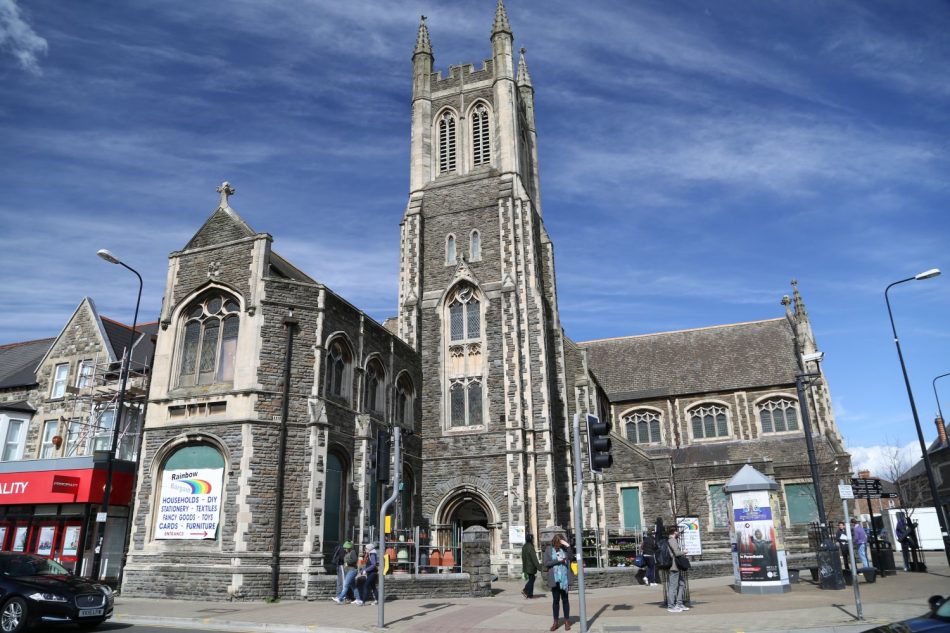 One of my pet travel projects is understanding “minority nations”, the countries within countries. The UK has that in droves: Wales, Scotland, Northern Ireland and arguably, England itself.
One of my pet travel projects is understanding “minority nations”, the countries within countries. The UK has that in droves: Wales, Scotland, Northern Ireland and arguably, England itself.
The thing is, I really could not find a distinction between Welsh culture and British culture at large. Sure, there’s a language that they have that looks like anagrams or txtspk, but beyond that, what makes someone uniquely Welsh? Certainly not the pubs and fish and chips, as you can find that pretty much anywhere in Great Britain. Apparently the crux of the stereotype of the Welsh is a sing-songy accent, as told to me by a Londoner. “Way-les”, she called it, with a frosting of disdain. I wanted a more cohesive picture of what the Welsh were.
When I said I was going to Wales, friends on Facebook advised me to hit Snowdonia, the national park. No one will argue that Wales is a place of natural beauty, but a separate culture? I made a mission to find out.
Cardiff
1st stop: Cardiff. A university town. Stayed with an English college student in his house of college students. One guy was from Merthyr Tydfil, a town northwest of Cardiff. He told me that the Welsh national dish is “cheese on toast”. Turns out, it pretty much is. Welsh rarebit is “a dish made with a savoury sauce of melted cheese and various other ingredients and served hot over toast.” Not a cuisine to rival the French or the Italians. But, he did teach me a couple of Welsh phrases. So, one point for language being the crux of the Welsh identity. Zero points for it being based on food.
Swansea
2nd stop: Swansea: Hung out with a Welsh woman who saw the benefits of Wales being able to make its own funding decisions, because she said that Welsh schools were underfunded in comparison to English schools. But she didn’t see Welsh independence as a guarantee for improvement or as something that was particularly likely. When I asked her about how the Welsh language would continue on as a living language simply by teaching it, she wasn’t sure. She studied Welsh and didn’t retain it, due to no applied use. It seemed a lot like the Ontarians that I’ve met talking about their required French classes. As with most dialects/local languages, Welsh is more popular among the older set. It wasn’t clear to me how it will be anything other than a hobby, taught as simply a way to keep it in the consciousness of the locals.
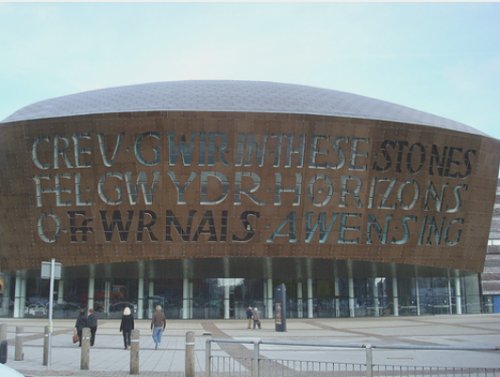
No further insight gained on any distinction, but Cardiff and Swansea are also known as not particularly Welsh places. I moved on.
Aberystwyth
3rd stop: Aberystywth, another university town. Arguably, the cultural capital of Wales. Which is the problem. Many places are arguably the cultural capital of Wales. The one thing Aberystwyth has going for it (other than a name that English speakers find funny and relatively lacking vowels), is that they have the National Library of Wales. Having failed at all times before to find some sort of cohesive Welsh identity, I thought that this would be a place where I might be able to hear the insights of someone who fancied themselves a historian.
Unfortunately, the people at the National Library of Wales turned out to only be trained in how to tell you how to use the search functions of the computer catalog and pointing you to general reference books. What I did find was telling, though:
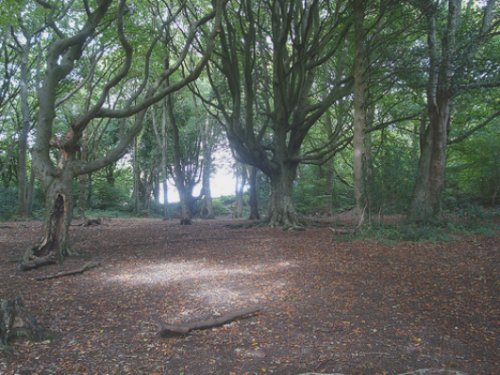 1) When I asked about how I would find out about Welsh culture in general, the question was somewhat ignored and I was told to check out the card catalog that was divided by locality.
1) When I asked about how I would find out about Welsh culture in general, the question was somewhat ignored and I was told to check out the card catalog that was divided by locality.
2) I was sent to a book, the definitive “The History of Wales”, by John Davies. I found a bit of humor in the fact that I was playing college researcher. I skimmed the book a bit and found the following quote from the chapter “Wales after 1939”:
The passion for rugby was such as to cause a redefinition of the characteristics of the Welsh. They were no longer conceived of as puritan chapel-goers, but rather as muscular boozers who were doubtful whether there was life beyond the dead-ball line. The portrait was misleading, of course, but it reflected the difficulty of forming a definition of Welshness which would be relevant to the nation in its entirety.
Unsatisfied, I decided to walk around the city. Realizing that I had forgotten to write down the above quote, I stopped in a bookstore to do so, only to be quickly swept out and redirected to the public library. There, I found the mystical person that I’d be looking for: an old(er), educated Welshman.
He graciously answered my implied questions.
1) My point: The Northern Irish are defined by their allegiance to an outside entity, be it The Crown or the Republic of Ireland. Scotland is defined as loathing the English. The frequent line is that the Scots cheer for Scotland and A.B.E. (anyone but England). But Wales didn’t seem to have that. Just a resignation that they were under the Queen, albeit different people.
Librarian’s take: The Scots have it lucky/different. Wales shares a long, ill-defined border with the English, including one place with a golf course where you drive from one country and putt in the other. The proximity to and lengthy border with England make it difficult to have the sort of separation that other parts of the UK have had.
My conclusion: Reasons for why the Welsh don’t have a difficult culture just proves my theory that they don’t.
2) My point: It’s fairly impossible to force the longevity of a language, in this case, Welsh. I had heard that there weren’t any parts of Wales where the signs were only in Welsh, also showing me that at best, it was secondary.
Librarian’s take: He and his co-workers speak in Welsh at work, thereby continuing the language. I didn’t feel like it was appropriate to point out that they were both older. Regarding signage, he felt like there was progress, as he remembered a time where there weren’t any signs in Welsh.
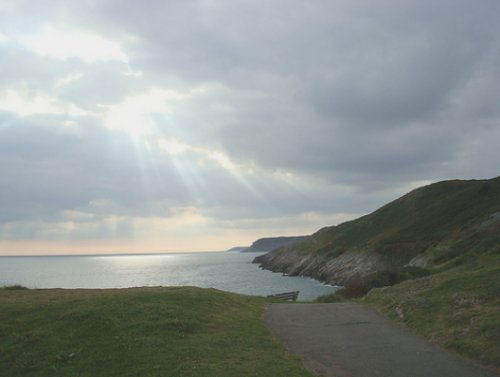 My conclusion: While there is something admirable about keeping languages alive, keeping it widely culturally relevant seems nearly impossible, especially when you’re in a country where the dominant language is also the dominant international language.
My conclusion: While there is something admirable about keeping languages alive, keeping it widely culturally relevant seems nearly impossible, especially when you’re in a country where the dominant language is also the dominant international language.
3) My point: There are some noticeable differences between the Welsh and the English but the differences would be more analogous to differences between the West and East Coast of the U.S., not even as varied as that of the States and Canada. To really have a good sense of these differences, you’d probably have to be living in England, then Wales for a while.
Librarian’s take: He agreed, it seemed. He said that one of his friends that moved to England noticed a difference in the people, but found it hard to quantify. Plus, the movement of people from one area of Wales to another and with English people coming in and out had made it so there was a lot of cross-pollination.
My conclusion: The Welsh are known as friendly people. The English don’t necessarily share this reputation. You could probably also say the same for Californians and New Yorkers.
4) My point: There didn’t seem to be a history of violent independence movements in Wales.
Librarian’s take: He agreed, citing the most violent acts being a ragtag group blowing up vacation homes a few decades back. He laughed at the question of whether the Welsh generally supported the IRA or other such movements in the past.
5) My point: The Welsh seemed to have resigned themselves to being under the Crown.
Librarian’s take: He said that the Welsh nationalist party had gained some momentum in the Welsh National Assembly and wasn’t seen as “bunch of kooks”.
Feeling like I had what I needed, I thanked him and left.
There you have it. The Welsh: sweet people, historically hard-working, with a funny language that some are desperately trying to keep alive. Surrounded by nature. Lots and lots of nature.
All pictures can be found at flickr.com/roniweiss





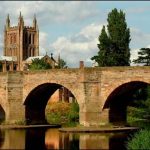

Leave a Reply